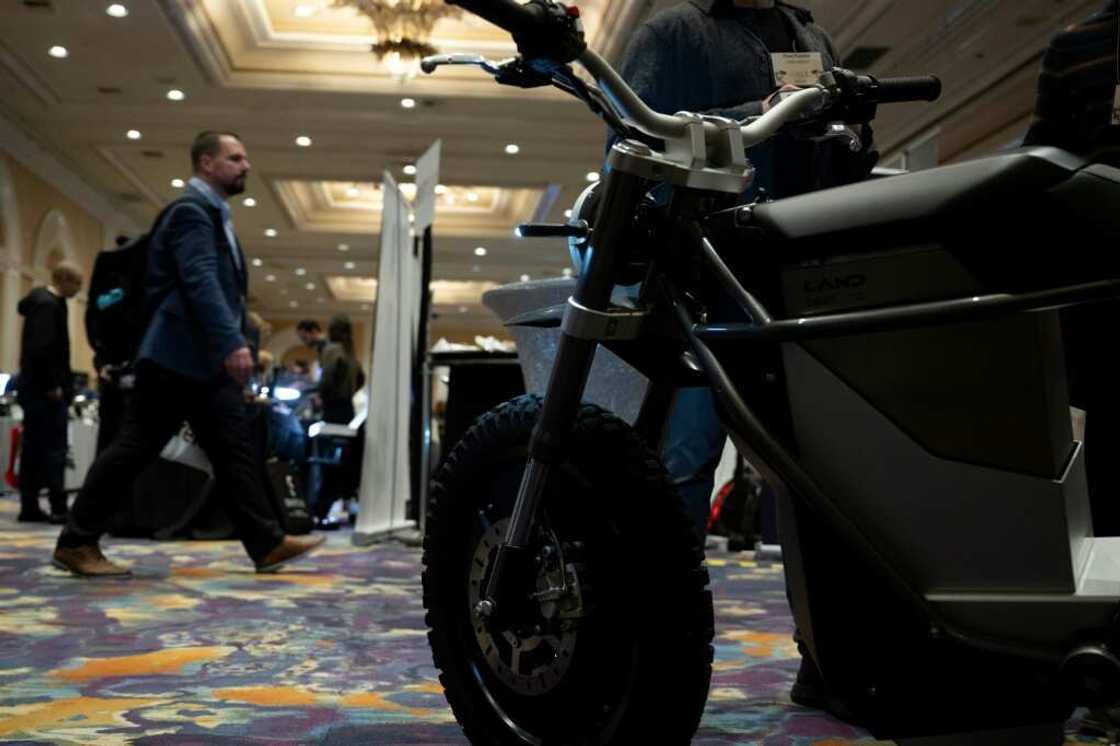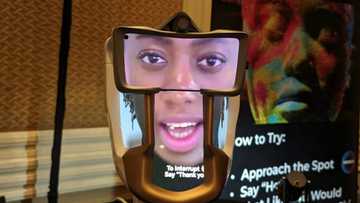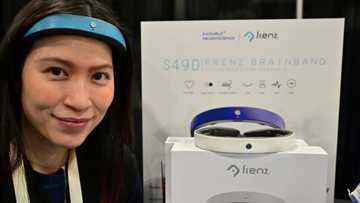E-bike craze in high gear at CES gadget fest

Source: AFP
PAY ATTENTION: The 2024 Business Leaders Awards Present Entrepreneurs that Change Nigeria for the Better. Check out their Stories!
Electric bicycle makers at CES touted slick features like ChatGPT as they rode a trend of people wanting to enjoy a breeze in their face without sweat on their brow.
Some 44 million "e-bikes" were sold worldwide last year, and that number is expected to top 77 million by the year 2030, according to market tracker Statista.
E-bike sales are outpacing sales of electric cars, according to data and companies pitching their latest models at the Consumer Electronics Show (CES) that ends in Las Vegas on Friday.
"Bikes are fun," said Futurum Group research director Olivier Blanchard, a self-confessed bicyclist.
"There is something about the freedom of being on a bicycle, out in the open air feeling the sun and wind on your skin."
And with e-bikes, that exhilaration comes with knowing you won't have to pedal hard up hills or exert much energy at all if you are tired.
PAY ATTENTION: Share your outstanding story with our editors! Please reach us through info@corp.legit.ng!
China-based Urtopia grabbed attention at this year's AI-obsessed CES with the introduction of an e-bike with ChatGPT chatbot capabilities built in.
Riders can speak to a smartphone-size control panel mounted to the center of the handlebars, prompting it with requests such as finding a fun one-day bike tour around Las Vegas.
The bike could also be asked to map a rider's route, with the right or left handle bar grip vibrating to signal which way to turn so they can keep their eyes on the road.
"I don't think the world needs another normal e-bike," Urtopia chief executive Bo Zhang said with a hand on his company's latest model.
"Everything is connected; everything is smart. That is definitely the future."
Also based in China, scooter-maker Okai started making e-bikes after seeing the trend picking up speed in Europe when cities began reopening in the wake of Covid-19 shutdowns, Jia Ren said at the company's CES booth.
People wanted the convenience and cost-savings of getting around cities by bicycle, and were averse to public transport given Covid concerns, Ren said.
E-bikes are particularly popular with younger folks accustomed to the mode of transportation, and with "the senior crowd" that wants to stay active but may be dealing with aging issues such as knee trouble, she added.
"E-bikes give people a chance to be laid-back, to be lazy," Ren said.
"A traditional biker needs to pedal all the time to keep going."
No sweat
US regulations limit the top speed of an e-bike to 20 miles per hour (32 kilometers per hour), which is close to a typical speed limit on city streets.
Sporty e-bike models at CES boasted carbon fiber frames to reduce weight and battery systems designed to maximize range.
Some bikes had sturdy designs for rough terrain or heavy loads, with panniers and racks for groceries, briefcases or other cargo.
Okai's were built with hidden spots behind the battery for Apple Air Tags or other small tracking devices to find them if stolen.
E-bikes are also a cheap, easy way to get around when compared with the cost of owning a car.
"You don't need a car to do everything that you need to do," Blanchard said.
"If there's a daunting hill or I'm extra loaded down, or I just don't want to get to work or home sweaty, I can just let the bike do the work."
PAY ATTENTION: Donate to Legit Charity on Patreon. Your support matters!
Source: AFP





